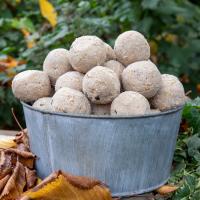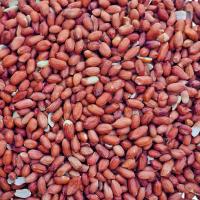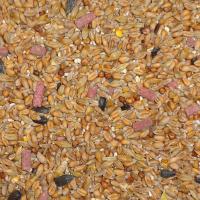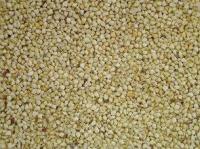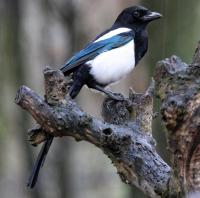- Home
- FAQs
- Customer Video Gallery
- Customer Photo Gallery
- Bird Facts
- Bird Food Blog
- Bird Information
- Feeding Advice
- Small Animal Information
- A to Z of Guinea Pigs
- A to Z of Hamsters
- A to Z of Rabbits
- Basic Care for Guinea Pigs
- Basic Care for Hamsters
- Basic Care for Rabbits
- Basic care for Chinchillas
- Basic care for Ferrets
- Basic care for Gerbils
- Basic care for Mice
- Basic care for Rats
- Buying a Healthy Small Animal
- Does your Reptile need a Licence
- Equipment for Ferrets
- Equipment for Hamsters
- Equipment for Mice
- Equipment for your Chinchilla
- Equipment for your Gerbil
- Equipment for your Guinea Pig
- Equipment for your Rabbit
- Keeping a House Rabbit
- Dog Information
- Cat Information
- Customer Information
- Fat Balls
- Suet Pellets
- Straights
- Seed Mixes
- Suet Treats
- Mealworms
- Bird Feeders
- My Account
Bird Watchers Code of Conduct
Believe it or not, there are approximately 3 million regular birdwatchers in the UK, that’s a lot of people who care for and appreciate the wild bird life of our country.
To give you an idea of how many people that is, imagine this…You’ve no doubt heard of Twitchers, the birdwatchers that rush all over the country to see rare birds, well if all the 3 million birdwatchers where Twitchers and all decided to come to see a rare bird in your garden, you would end up with everyone from Cornwall, Liverpool, Birmingham, Bradford, Sheffield, Leeds, Wiltshire, Bristol, Manchester, Northumberland and Shropshire knocking on your door! Besides needing a huge car park to fit everyone in you would probably need a really, really good gardener to sort the garden out after they’d been.
Because of our numbers, we do need to stick to certain rules when out enjoying our hobby, after all if we destroy the countryside or harm the birds habitats it is not just the birds that will suffer, we will lose a hobby.
I've put together 15 simple rules to follow when out Bird-watching, please follow them, they will help ease pressure on the countryside, the birds, and their habitats.
The code of conduct is just common sense, its puts the interest of the birds first and ultimately will allow us enjoy our hobby to the full.
Twootz Tips:
As always…Happy Birding!
To give you an idea of how many people that is, imagine this…You’ve no doubt heard of Twitchers, the birdwatchers that rush all over the country to see rare birds, well if all the 3 million birdwatchers where Twitchers and all decided to come to see a rare bird in your garden, you would end up with everyone from Cornwall, Liverpool, Birmingham, Bradford, Sheffield, Leeds, Wiltshire, Bristol, Manchester, Northumberland and Shropshire knocking on your door! Besides needing a huge car park to fit everyone in you would probably need a really, really good gardener to sort the garden out after they’d been.
Because of our numbers, we do need to stick to certain rules when out enjoying our hobby, after all if we destroy the countryside or harm the birds habitats it is not just the birds that will suffer, we will lose a hobby.
I've put together 15 simple rules to follow when out Bird-watching, please follow them, they will help ease pressure on the countryside, the birds, and their habitats.
The code of conduct is just common sense, its puts the interest of the birds first and ultimately will allow us enjoy our hobby to the full.
Twootz Tips:
- The birds welfare must come first, do not disturb the bird or habitat
- Follow the countryside code
- Respect other birdwatchers
- Respect the birds, don’t venture to close and don’t disturb the bird. Use binoculars for detailed, close observation. If the bird calls repeatedly, move away
- Do not destroy or damage any type of habitat
- It is illegal to approach many species of nesting birds, it is probably best to avoid all nesting birds should you find any. You could face prosecution if a scheduled bird is flushed off a nest
- Keep to public rights of way at all times, do not leave paths and do no trespass on private land. Seek permission from land owners should it be required
- If you are lucky enough to find a rare bird, assess the general area, respect resident’s privacy and seek help from local wildlife organisations before releasing the news. They will be able to help monitor the situation and protect the local birds and the rare bird
- Keep a note of what you see, when and where you see it and the weather conditions. Send details to your local county recorder, this will help monitoring increases / declines in species. If habitats/species need protection your comments over time will be invaluable
- Avoid using / playing recordings to attract the birds, this can stress the birds during breeding seasons. Birds will move away from territories to investigate another singing/calling male,(the recording) thus stopping them from feeding young nestlings
- If visiting nature reserves, make a donation. This will help stocking of Bird-tables, feeding stations and bird feeders during the winter months
- Keep quiet, allow fellow birdwatchers to enjoy the birds as well
- If you see anyone or anything suspicious around a known rare bird breeding area, or if you find a rare breeder, report it to the police or contact the RSPB and county recorder
- Take all your litter home
- Enjoy your hobby, be an ambassador. When out in the field talk to non- birdwatchers about the local flora and fauna, they may have a passing interest that may develop due to your enthusiasm
As always…Happy Birding!




